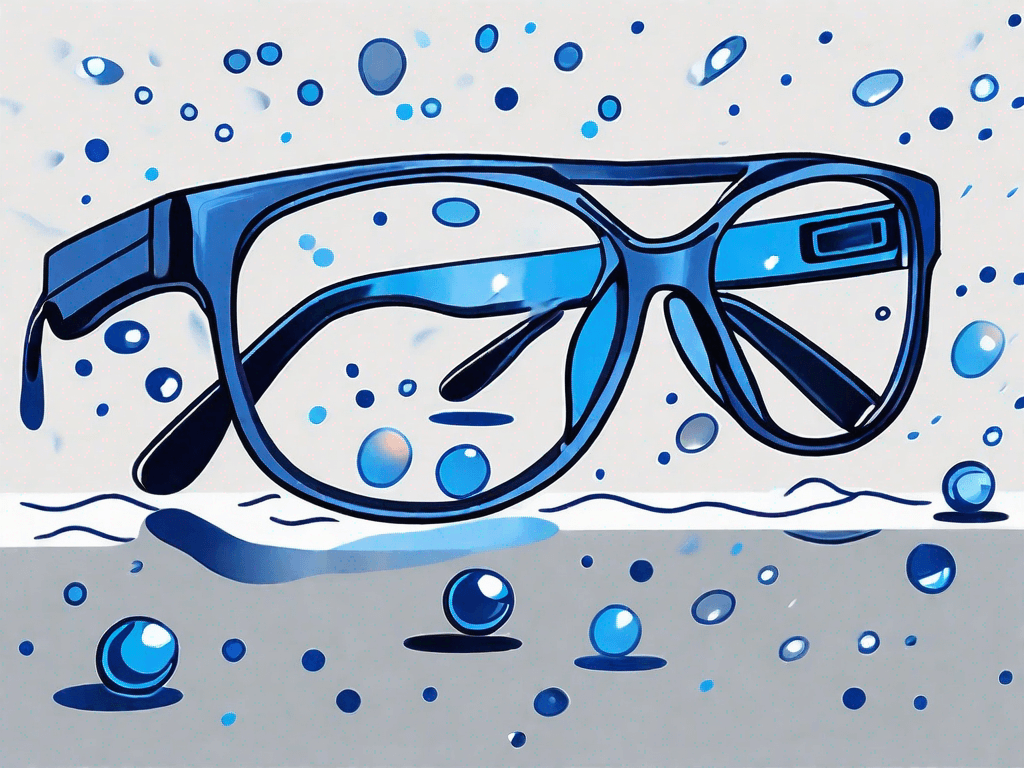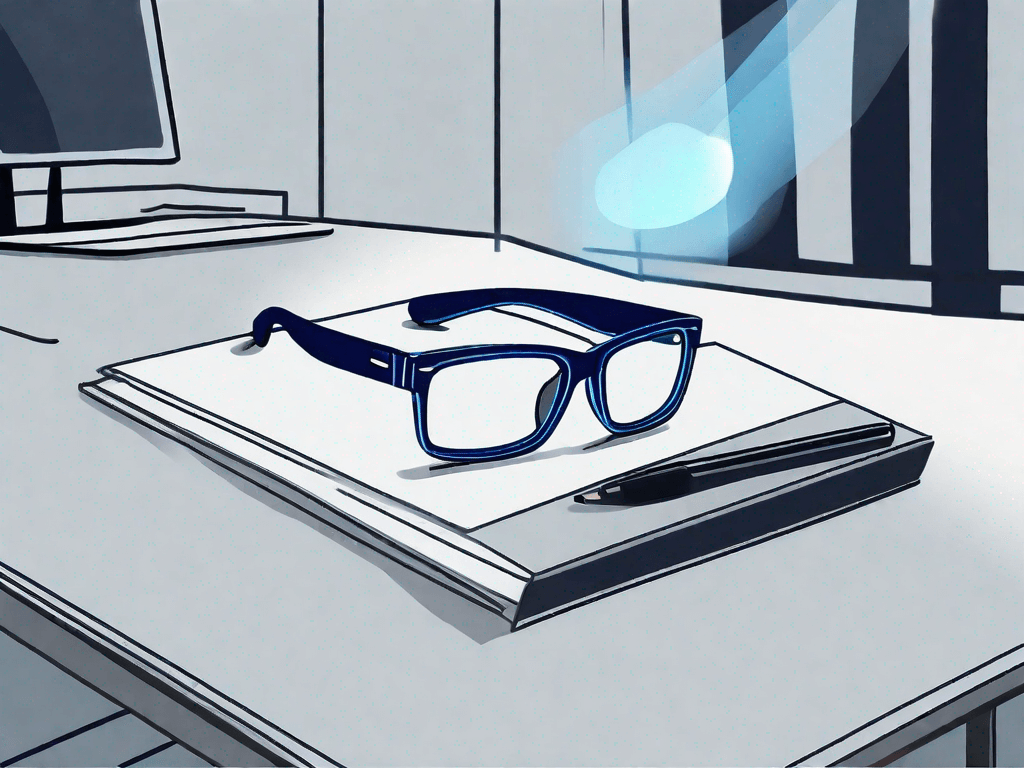Do Blue Light Glasses Help with Floaters?
Eye floaters can be a bothersome condition that can affect our vision and overall quality of life. While there are various treatments and methods available to manage these floaters, one option that has gained popularity in recent years is the use of blue light glasses. These glasses are designed to filter out harmful blue light emitted from electronic devices and artificial light sources. But do they really help with floaters? Let's dive into the topic and explore the connection between blue light glasses and eye floaters.
Understanding Eye Floaters
Before we discuss the potential benefits of blue light glasses for floaters, it's important to understand what eye floaters are and what causes them. Eye floaters are tiny specks or spots that float across our field of vision. They are often more noticeable when looking at bright backgrounds or clear surfaces. Floaters are made up of protein clumps that cast a shadow on the retina, causing these specks to appear in our vision.
Causes and symptoms of eye floaters can vary from person to person. In most cases, age-related changes in the vitreous, which is the gel-like substance inside the eye, are the primary cause. However, eye injuries, inflammation, and certain medical conditions can also contribute to the formation of floaters.
Age-related changes in the vitreous humor, which is the gel-like substance that fills the space between the lens and the retina, play a significant role in the development of eye floaters. As we age, the vitreous humor becomes more liquid and less gel-like, causing it to shrink and pull away from the retina. This process is known as vitreous detachment and is a natural part of the aging process. However, when the vitreous detaches, it can sometimes leave behind small strands of collagen protein that float in the vitreous humor, casting shadows on the retina and causing floaters to appear.
In addition to age-related changes, eye injuries can also lead to the formation of floaters. Any trauma to the eye, such as a direct blow or penetrating injury, can cause the release of blood or other debris into the vitreous humor. This debris can then clump together and create floaters in the visual field. It's important to seek immediate medical attention if you experience any eye injury, as it can have long-lasting effects on your vision.
Inflammation in the eye, known as uveitis, is another potential cause of floaters. Uveitis is the inflammation of the uvea, which is the middle layer of the eye that contains the iris, ciliary body, and choroid. When the uvea becomes inflamed, it can release inflammatory cells into the vitreous humor, leading to the formation of floaters. Uveitis can be caused by various factors, including infections, autoimmune diseases, and trauma.
Certain medical conditions can also contribute to the development of eye floaters. For example, diabetic retinopathy, a complication of diabetes that affects the blood vessels in the retina, can cause bleeding in the eye and the formation of floaters. Similarly, retinal tears or detachments, which can occur due to trauma or other underlying conditions, can lead to the appearance of floaters in the visual field.
It's important to note that while eye floaters are generally harmless, they can sometimes be a sign of a more serious underlying condition. If you experience a sudden increase in floaters, flashes of light, or a loss of peripheral vision, it's crucial to seek immediate medical attention. These symptoms could indicate a retinal tear or detachment, which requires prompt treatment to prevent permanent vision loss.
The Science Behind Blue Light Glasses
To understand how do blue light glasses help with floaters and the potential effectiveness of blue light glasses in managing floaters, it's crucial to grasp the concept of blue light itself. Blue light is a high-energy visible light in the spectrum that reaches deeper into the eye compared to other types of light. It is emitted by electronic devices such as smartphones, tablets, and computers, as well as artificial light sources.
When we use electronic devices or spend a significant amount of time exposed to artificial light, our eyes are constantly bombarded with blue light. This prolonged exposure can have various effects on our eyes and overall health. Research suggests that excessive exposure to blue light may contribute to digital eye strain, which can cause symptoms like dry eyes, blurred vision, and headaches.
Blue light glasses are specifically designed to filter out a significant portion of the blue light emitted from these sources. They are equipped with lenses that contain a special coating or material that helps reduce the amount of blue light entering the eyes. These lenses work by selectively blocking the harmful blue light while allowing other types of light to pass through.
One of the key components in blue light glasses is the blue light filter. This filter is typically made of a yellow-tinted material that absorbs a significant portion of the blue light. By absorbing the blue light before it reaches the eyes, the filter helps to minimize the potential negative effects associated with excessive blue light exposure.
Additionally, some blue light glasses also incorporate anti-reflective coatings. These coatings reduce glare and reflections from the lens surface, further enhancing visual comfort during prolonged device usage. By reducing glare, these coatings can help alleviate eye strain and improve overall visual clarity.
It's important to note that while blue light glasses can be beneficial in reducing blue light exposure, they are not a cure-all solution. It's still essential to practice healthy screen habits, such as taking regular breaks, maintaining proper posture, and adjusting screen brightness to reduce eye strain. Blue light glasses should be seen as a complementary tool in managing the potential effects of blue light on our eyes.
As the use of electronic devices continues to rise, the demand for blue light glasses has increased. Many individuals, including students, office workers, and gamers, have turned to these glasses to help alleviate the symptoms associated with prolonged screen time. The effectiveness of blue light glasses may vary from person to person, depending on factors such as individual sensitivity to blue light and the amount of time spent in front of screens.
Blue light glasses offer a potential solution for managing the effects of blue light exposure on our eyes. By filtering out a significant portion of the harmful blue light, these glasses can help reduce digital eye strain and improve visual comfort. However, it's important to remember that blue light glasses should be used in conjunction with other healthy screen habits to maintain optimal eye health.
Blue Light Glasses and Eye Floaters
Eye floaters are a common condition characterized by the presence of small, dark specks or cobweb-like shapes that appear to float in your field of vision. While blue light glasses may not directly target or treat the underlying cause of eye floaters, they are believed to provide some potential benefits for individuals experiencing this condition.
Floaters are typically caused by tiny clumps of gel or cells within the vitreous, the gel-like substance that fills the inside of your eye. As you age, the vitreous can become more liquid, causing these clumps to cast shadows on the retina, resulting in the perception of floaters. They are more noticeable when looking at bright backgrounds, such as a clear sky or a white wall.
Potential Benefits of Blue Light Glasses for Floaters
One of the main benefits of wearing blue light glasses is the potential reduction of eye strain and fatigue. Many individuals with floaters often experience increased eye strain and discomfort when looking at electronic screens or under bright lighting conditions. By filtering out blue light, these glasses may help alleviate some of the visual stress associated with floaters.
Blue light is part of the visible light spectrum and is emitted by electronic devices, such as smartphones, tablets, and computers. It has a shorter wavelength and higher energy compared to other colors of light. Some studies suggest that prolonged exposure to blue light can contribute to eye strain, dryness, and fatigue.
In addition to reducing eye strain, blue light glasses can also improve sleep quality. Exposure to blue light before bedtime can suppress the production of melatonin, a hormone that regulates sleep. By wearing blue light glasses in the evening, individuals with floaters can minimize the impact of blue light on their sleep patterns, leading to a more restful night's sleep.
Blue light glasses can be beneficial for individuals who spend a significant amount of time in front of screens, such as office workers or students. By reducing the amount of blue light entering the eyes, these glasses may help prevent digital eye strain and alleviate symptoms such as dryness, redness, and blurred vision.
The Limitations of Blue Light Glasses in Treating Floaters
While blue light glasses can offer certain benefits, it's important to note that they do not directly address the underlying cause of floaters. These glasses primarily work by reducing the amount of blue light entering the eyes, which can help relieve some symptoms associated with floaters. However, they do not eliminate or treat the floaters themselves.
If eye floaters significantly affect your daily activities or are accompanied by other vision problems, it is important to consult with an eye care professional for a thorough evaluation and appropriate treatment recommendations. In some cases, surgical intervention may be necessary to remove the floaters or address any underlying issues contributing to their formation.
It's worth mentioning that there are various treatment options available for floaters, depending on the severity and impact on your vision. These options range from conservative approaches, such as lifestyle modifications and eye exercises, to more invasive procedures like vitrectomy or laser therapy.
Ultimately, the decision to use blue light glasses as a management strategy for floaters should be made in consultation with an eye care professional who can assess your specific needs and provide personalized recommendations.
Other Methods to Manage Eye Floaters
In addition to considering blue light glasses, there are other methods and treatments available to manage eye floaters.
Lifestyle Changes for Eye Health
Making certain lifestyle changes can help improve overall eye health and potentially minimize the impact of floaters. It is important to maintain a balanced diet rich in nutrients beneficial for eye health. Foods such as leafy greens, carrots, and citrus fruits are known to contain vitamins and antioxidants that support eye health. Staying hydrated is also crucial as it helps maintain the proper moisture levels in the eyes, reducing the risk of dryness and irritation.
Avoiding activities that strain the eyes for extended periods can help prevent the development or worsening of floaters. Taking regular breaks from screen time, adjusting the lighting in your environment, and practicing the 20-20-20 rule (looking at something 20 feet away for 20 seconds every 20 minutes) can provide relief and reduce eye strain.
Practicing relaxation techniques like meditation or yoga can help reduce stress levels, which may indirectly improve the perception of floaters. Stress can exacerbate eye conditions, so finding ways to relax and unwind can have a positive impact on overall eye health.
Medical Treatments for Eye Floaters
In some cases, medical treatments may be recommended to manage bothersome or visually disruptive floaters. These treatments range from laser therapy to vitrectomy, a surgical procedure to remove the vitreous gel along with the floaters. Laser therapy involves using a laser to break up the floaters into smaller pieces, making them less noticeable. Vitrectomy, on the other hand, involves removing the vitreous gel and replacing it with a saline solution.
It's important to note that these treatments are typically reserved for severe cases and carry certain risks and complications. Laser therapy, while non-invasive, can cause temporary side effects such as increased floaters or light sensitivity. Vitrectomy, being a surgical procedure, carries risks such as infection, retinal detachment, and cataract formation. Consultation with an eye care professional is essential to determine the most appropriate course of action based on the severity and impact of the floaters.
It is worth mentioning that while these methods and treatments can help manage eye floaters, they may not completely eliminate them. Floaters are a natural part of the aging process and are often harmless. If you experience a sudden increase in floaters, flashes of light, or changes in vision, it is crucial to seek immediate medical attention as these could be signs of a more serious underlying condition.
Making the Decision: Are Blue Light Glasses Right for You?
When considering whether blue light glasses are the right choice for managing eye floaters, several factors come into play.
Eye floaters can be a common occurrence and are often harmless. They appear as small specks or spots that float across your field of vision, and they are caused by tiny clumps of gel or cells inside the vitreous, the clear gel-like substance that fills the inside of your eye. While they can be a normal part of the aging process, they can also be a symptom of an underlying eye condition, such as retinal detachment or inflammation.
First and foremost, it's crucial to consult with an eye care professional to receive a comprehensive eye examination. They can assess the severity of your floaters, rule out any underlying eye conditions, and provide personalized recommendations. During the examination, your eye care professional will use various techniques to evaluate your eyes, including a visual acuity test, a dilated eye exam, and possibly imaging tests like an ultrasound or optical coherence tomography (OCT) scan.
Factors such as the amount of time spent in front of screens, the severity of eye strain, and the level of sleep disruption should be considered. Blue light, which is emitted by electronic devices like smartphones, tablets, and computers, has been linked to digital eye strain and sleep disturbances. Blue light glasses are designed to filter out a portion of the blue light, potentially reducing eye strain and improving sleep quality.
Balancing the potential benefits of blue light glasses with other management strategies, such as lifestyle changes or medical treatments, is also important to make an informed decision. Lifestyle changes may include taking regular breaks from screen time, practicing the 20-20-20 rule (looking at something 20 feet away for 20 seconds every 20 minutes), and adjusting the brightness and contrast settings on your devices. In some cases, medical treatments like vitrectomy (surgical removal of the vitreous) or laser therapy may be recommended to address severe or persistent floaters.
Consultation with Eye Care Professionals
The decision to use blue light glasses as a method to manage eye floaters should be discussed with an eye care professional. They can provide valuable insights based on your specific circumstances and guide you toward the most appropriate course of action. They will take into account factors such as the severity of your floaters, your lifestyle, and your overall eye health.
Blue light glasses may offer potential benefits for individuals with eye floaters, particularly in reducing eye strain and improving sleep quality. However, it's important to understand that these glasses do not directly treat the underlying cause of floaters. Considering other methods such as lifestyle changes or medical treatments is essential to effectively manage this condition. Consulting with an eye care professional is crucial to receive personalized advice and determine the best approach for managing eye floaters.





